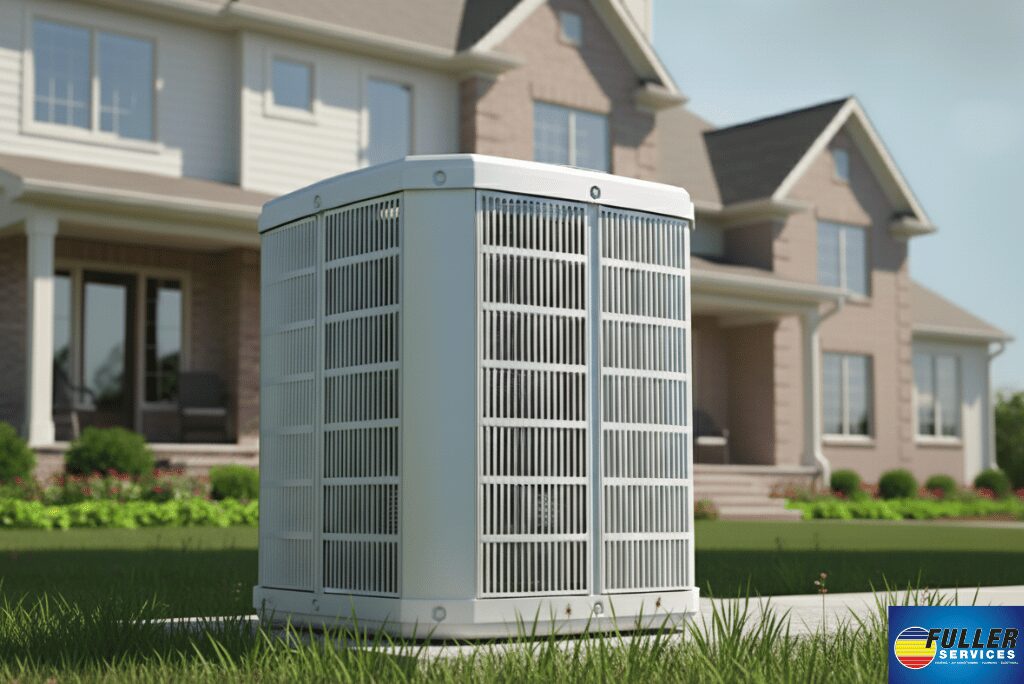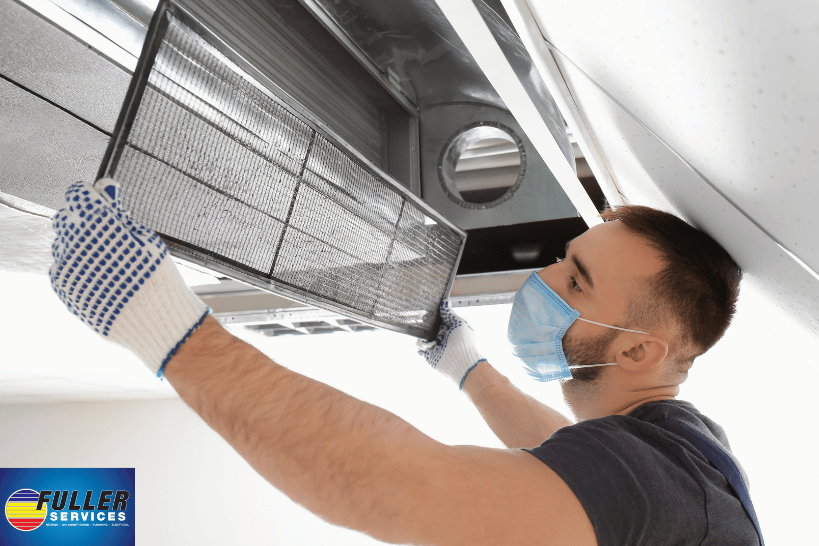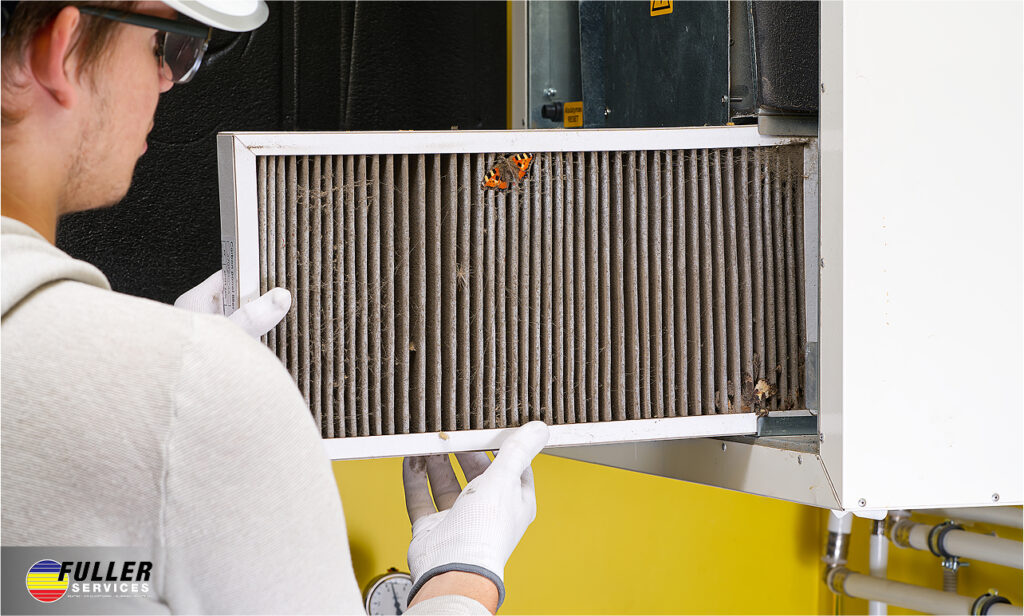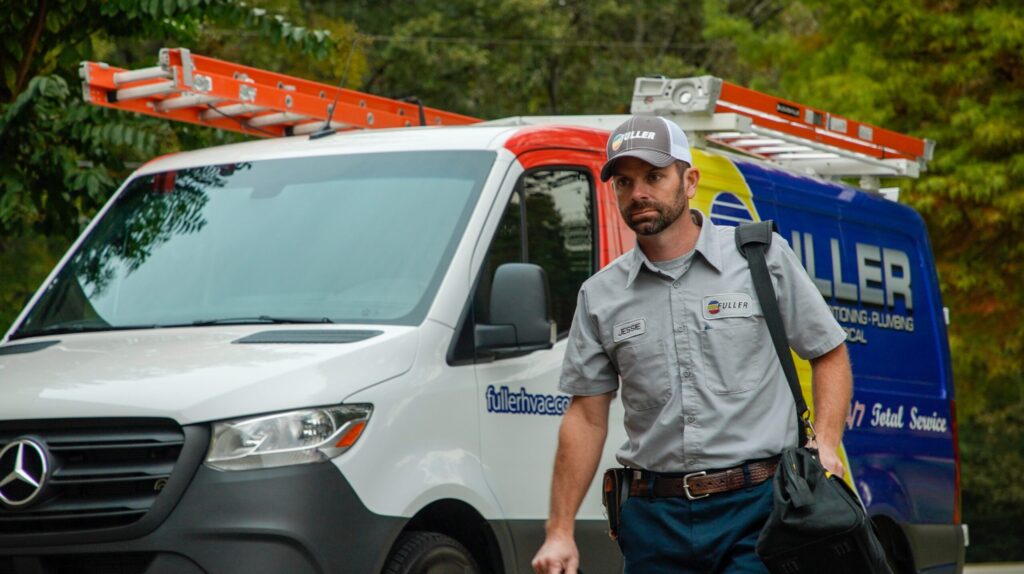
Growing up, you probably heard plenty of warnings about things that would supposedly make you sick. Sitting too close to the television would ruin your eyesight. Swimming right after eating would give you cramps. Going outside in winter without a coat would guarantee a nasty cold. Most of these cautionary tales turned out to be more fiction than fact.
But what about the claim that your heating and air conditioning system can make you sick? Is that just another myth passed down through generations, or is there real truth behind it?
As it turns out, the relationship between your HVAC system and your health is far more significant than many homeowners realize. Understanding the warning signs can help you identify whether your indoor air quality is compromising your well-being and what you can do about it.
Can My HVAC System Actually Make Me Sick?
Yes, your HVAC system can absolutely contribute to health problems under certain conditions. While your equipment itself isn’t generating illness out of thin air, a poorly maintained system can become a powerful distribution network for things that make you feel terrible.
Think about how your heating and air conditioning actually work. The system continuously pulls air from your living spaces, conditions it to the desired temperature, and circulates it back through your ductwork into every room. This process happens dozens of times each day, meaning your indoor air passes through the system repeatedly.
A clean, functional HVAC system provides comfort and healthy air quality. However, the buildup of contaminants turns the circulation process into a delivery system, spreading allergens, mold, and bacteria throughout your house. The moisture from AC and the dry heat conditions both create environments where these problems thrive.
Related Article: How HVAC Contributes to Indoor Air Quality
Warning Signs Your HVAC is Making You Sick
Your body is remarkably good at telling you when something in your environment isn’t right.
Watch for these common warning signs:
- Recurring headaches that seem to develop after you’ve been home for a while and mysteriously fade when you leave
- Allergies that flare up indoors regardless of the season, including sneezing, congestion, and watery or itchy eyes
- Asthma symptoms that worsen at home, including wheezing, chest tightness, and shortness of breath
- Persistent fatigue and brain fog that lift when you spend time away from the house
- Irritated skin that becomes dry, itchy, or develops unexplained rashes
- Frequent sore throats, sinus infections, or respiratory issues that linger longer than they should
- Nausea or dizziness that corresponds with your system cycling on
The key indicator is pattern recognition. If multiple family members experience similar symptoms, or if your issues consistently improve when you’re at work, running errands, or traveling, your indoor air deserves serious attention. These patterns strongly suggest environmental factors rather than coincidence.
Red Flags in Your Home Environment
Beyond what your body tells you, your home itself often provides clues that something is wrong with your HVAC system. Paying attention to these environmental red flags can help you catch problems early.
Strange or Musty Odors
One of the most obvious indicators is odor. When your heating or air conditioning kicks on, you should notice a neutral smell or perhaps just slightly warm or cool air. If you detect musty, stale, or unpleasant odors every time the system runs, something is likely growing inside your ductwork or equipment. This smell often indicates mold or mildew, which releases spores directly into your breathing air and can trigger allergies and respiratory issues.
Visible Moisture Problems
Excess moisture signals trouble throughout your home. Look for condensation on windows, water stains near vents or on ceilings, or visible dampness around your indoor unit. These signs suggest your system isn’t managing humidity properly. When moisture levels rise too high, your home becomes an ideal breeding ground for mold growth, and allergens like dust mites thrive in these damp conditions. Your indoor air quality suffers significantly as a result.
Excessive Dust Accumulation
Pay close attention to dust patterns in your home. If you’re cleaning surfaces constantly but dust reappears almost immediately, your system may not be filtering air effectively. Heavy dust accumulation around vents and registers suggests either failing filters or leaky ductwork pulling contaminants from unconditioned spaces like attics and crawlspaces. This constant influx of particles compromises your air quality and aggravates allergies and asthma symptoms.
What’s Actually Going Wrong Inside Your System
Several specific HVAC problems commonly lead to health issues for homeowners. Knowing about these culprits can help you make smart decisions about repairs and maintenance:
- Neglected air filters become saturated with trapped allergens and particles, eventually releasing contaminants back into your home instead of capturing them
- Ductwork develops mold colonies in dark, humid sections, spreading spores throughout your living spaces every time the system operates
- Condensate drain pans collect standing water that becomes stagnant, breeding bacteria and other microorganisms that affect indoor air quality
- Inadequate ventilation allows indoor air to become stale and pollutant concentrations to build up over time without fresh air dilution
- Excessive moisture from oversized air conditioning units or drainage problems creates humidity levels where mold and dust mites flourish
Each of the above has a solution, which is the good news. SO long as each is properly diagnosed with professional attention, you can eliminate the source of your symptoms and restore healthy indoor air to your home.

How to Fix the Problem and Protect Your Health
Taking action quickly is essential if you suspect your HVAC system is affecting your health. Several straightforward steps can help you address the problem and start breathing easier.
Schedule a Professional Inspection
Start by contacting a qualified HVAC professional to schedule a thorough evaluation of your entire system. An experienced technician can examine your equipment from top to bottom, identify mold or contamination hiding in your ductwork, check for mechanical issues affecting performance, and assess your overall air quality situation. This comprehensive inspection provides the foundation for solving your indoor air problems.
Replace Your Air Filters
While waiting for your appointment, take a look at your air filter right now. If it appears dirty or clogged, replace it immediately with a fresh one.
Moving forward, commit to changing filters every one to three months based on your household’s needs. Homes with pets, family members who suffer from allergies or asthma, or higher than average dust levels may need more frequent filter changes to maintain healthy indoor air quality.

Consider Duct Cleaning and Air Quality Upgrades
Ask your technician about professional duct cleaning, especially if your home is older or you’ve never had this service performed. Years of accumulated dust, debris, and potential mold growth can hide inside your ductwork where you can’t see it.
Additionally, ask about air quality upgrades such as higher-efficiency filters, UV light sanitizers, or whole-home air purification systems that integrate with your existing HVAC equipment.
Commit to Routine Maintenance
Above all, establish a routine maintenance schedule and stick to it. Annual professional tune-ups for both your heating and air conditioning components prevent most of the problems that compromise indoor air quality in the first place. This small investment in regular maintenance protects both your expensive equipment and your family’s health for years to come.

Breathe Easier in Your Own Home
Unlike those childhood myths about catching a cold from wet hair, the connection between your HVAC system and your health is very real. When your equipment circulates contaminated air filled with allergens, mold spores, and other contaminants, the symptoms you experience are genuine responses to genuine problems.
Your home should be a place where you feel your best, not a source of unexplained headaches, persistent allergies, or worsening asthma. If you’ve noticed troubling patterns in how you feel at home, don’t dismiss them. Reach out to a trusted HVAC professional who can identify the root cause and help you reclaim healthy indoor air for you and your family.

